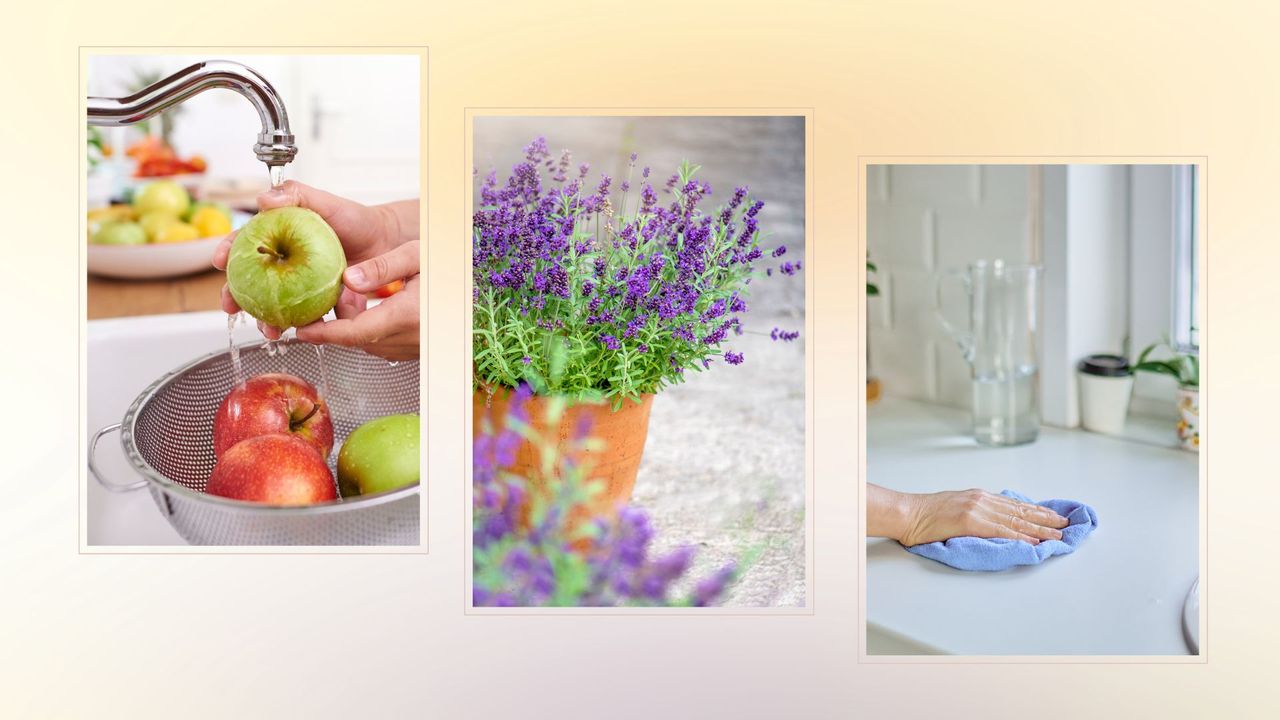
Trying to figure out how to get rid of fruit flies can become a real challenge during the summer months. Luckily, we have easy homemade solutions that take just a few minutes to execute.
Unwelcome pests in the home are an extremely common scenario during summer - and incredibly irritating - but thankfully, the problem can be easily solved if you know how. When it comes to getting rid of fruit flies, much like getting rid of flies or keeping wasps away and keeping ants away from the house, there are lots of simple and harmless ways to repel the pests.
Follow the guidance from our team of pest control and cleaning experts to keep your house free from fruit flies this summer.
How to get rid of fruit flies: 9 harmless methods
Thankfully, there is a simple step-by-step process to eliminate fruit flies and prevent future infestations.
Similar to getting rid of spiders, all you need is a solid action plan to get rid of fruit flies in the house, once and for all.
1. Reduce your waste
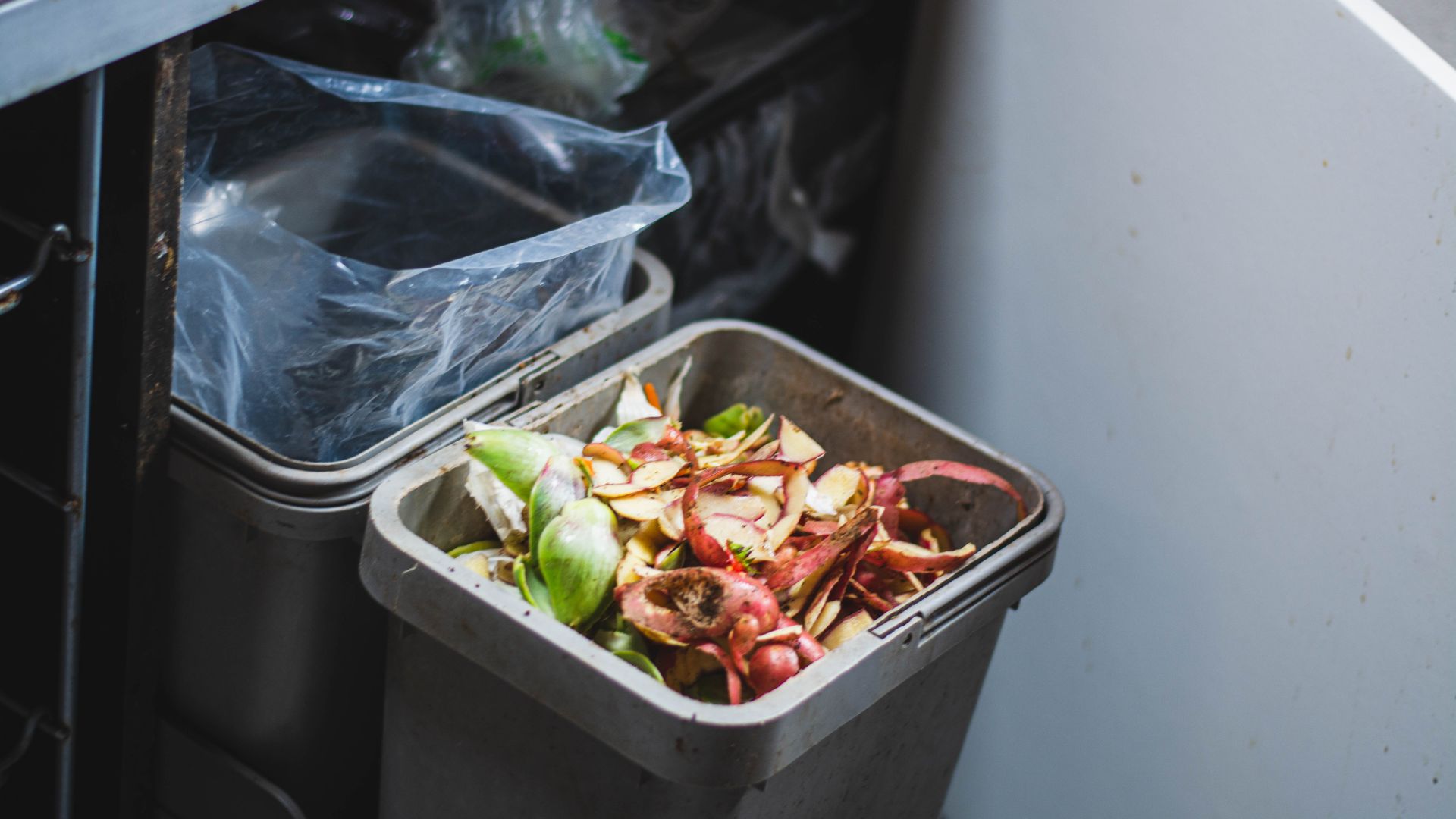
First things first, deal with the problem at the source by limiting the amount of produce you have in your kitchen.
"The best way to avoid fruit flies is to cut your waste," says Adam Juson, co-founder of commercial pest control company, Merlin Environmental. "If you only buy what you know you’re going to eat/use, you’ll not only ensure that you have nothing to attract fruit flies into your home, but also save yourself some money."
2. Wash and refrigerate ripe fruit
To eliminate possible breeding grounds, wash fruit with apple cider vinegar as soon as you bring it home. “Getting rid of and keeping fruit flies away is straightforward if you know what to look out for,” says Clara Velho, CEO of Gemstone Cleaning Services. “As a general rule, start with keeping the kitchen clean, including washing the fruit and the bowl you keep it in. I soak my fruit in apple cider vinegar mixed with water for about 20-30 minutes as a fantastic way of getting rid of bacteria.”
It can also help to store ripe fruits in the fridge. As soon as any produce starts to look overripe, chop it up and freeze it, then use it as an ingredient in baking or for making blender smoothies.
3. Empty your bins
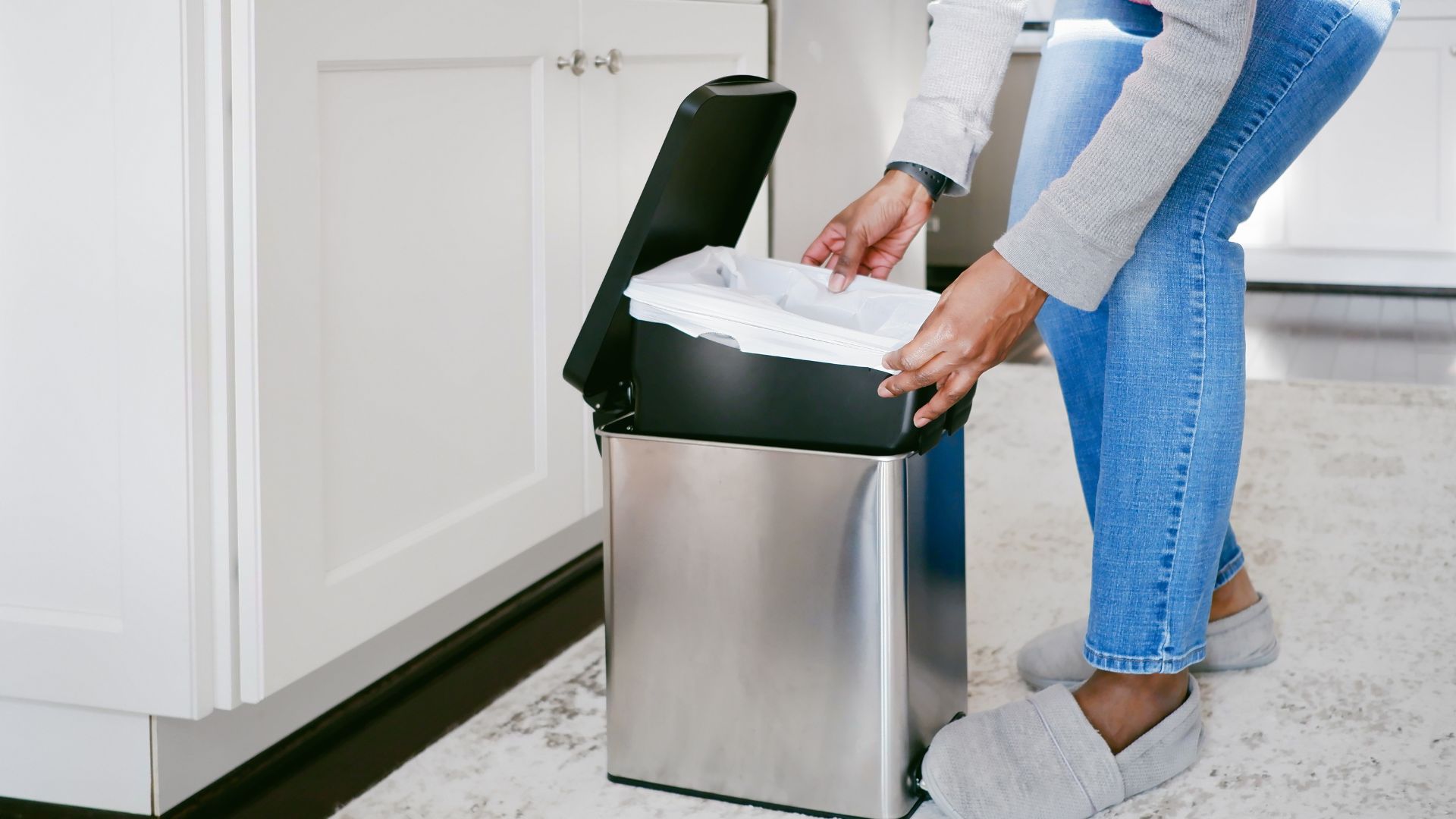
While it’s tempting to put off the task of emptying bins until they are completely full, it’s important to empty them daily in the summer. You'll no doubt be trying to keep your bins smelling fresh all summer, but with the increasing heat, it's a challenge.
"Emptying your bins at least daily can help to stop fruit flies taking hold," says Adam.
This is particularly true of compost bins or any other bin that contains food waste. Even a recycling bin that contains any lingering food residue could provide a breeding ground for fruit flies.
Emptying and wiping down bins daily will not only reduce feeding and breeding grounds for fruit flies and other pests but will also prevent unpleasant and lingering smells in the kitchen. Try the savvy cleaning hack for better-smelling bins by using essential oils (more on that later).
4. Sanitise and close your drains
While not strictly fruit flies, drain flies (also known as sewer gnats) are another pest that can be mistaken for fruit flies, as they share a very similar appearance. These gnats are one of the reasons experts urge homeowners to clean their drains before a heatwave.
"You should pay attention to areas where fruit flies may lay their eggs, such as drains," says Jordan. "If organic residues attract the flies, use a drain cleaner to remove them."
If you’ve noticed these teeny pests gathering near the sink, you can use drain cleaner or a homemade solution (for example, a mix of baking soda and vinegar) to deep clean the drain, then keep the plug closed when not in use.

RRP: £5.48 | It's always a good idea to have a few bottles of drain unblocker in your home at all times, especially over the summer. This one from Mr Muscle is safe for all pipes and will make quick work of clogs.
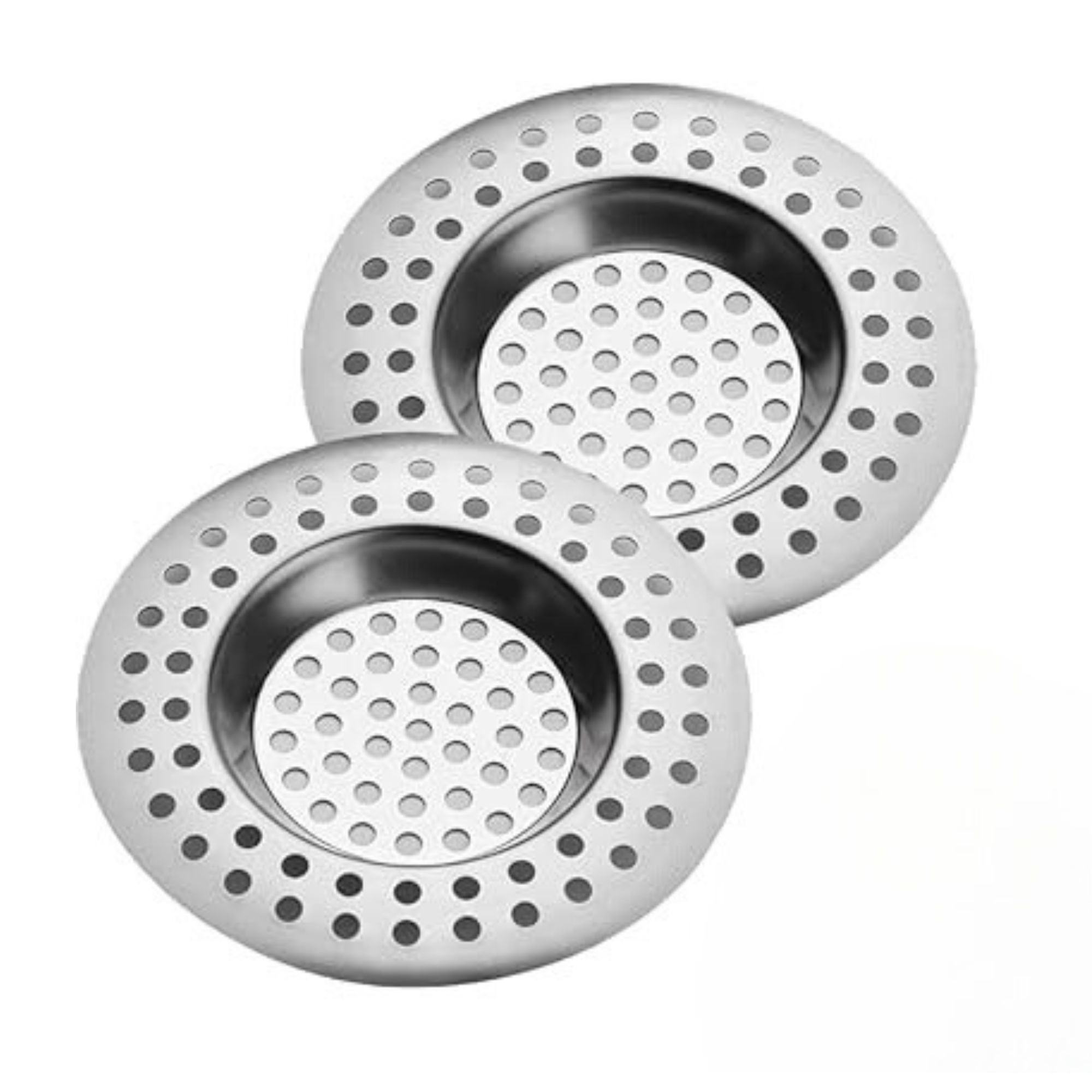
RRP: £3.99 | These drain protectors are ideal for having in your kitchen sink, where food bits will often be caught in the plug. Whilst you'll still have to watch out for liquids, this strainer will catch all the large bits which quickly clog your drain.
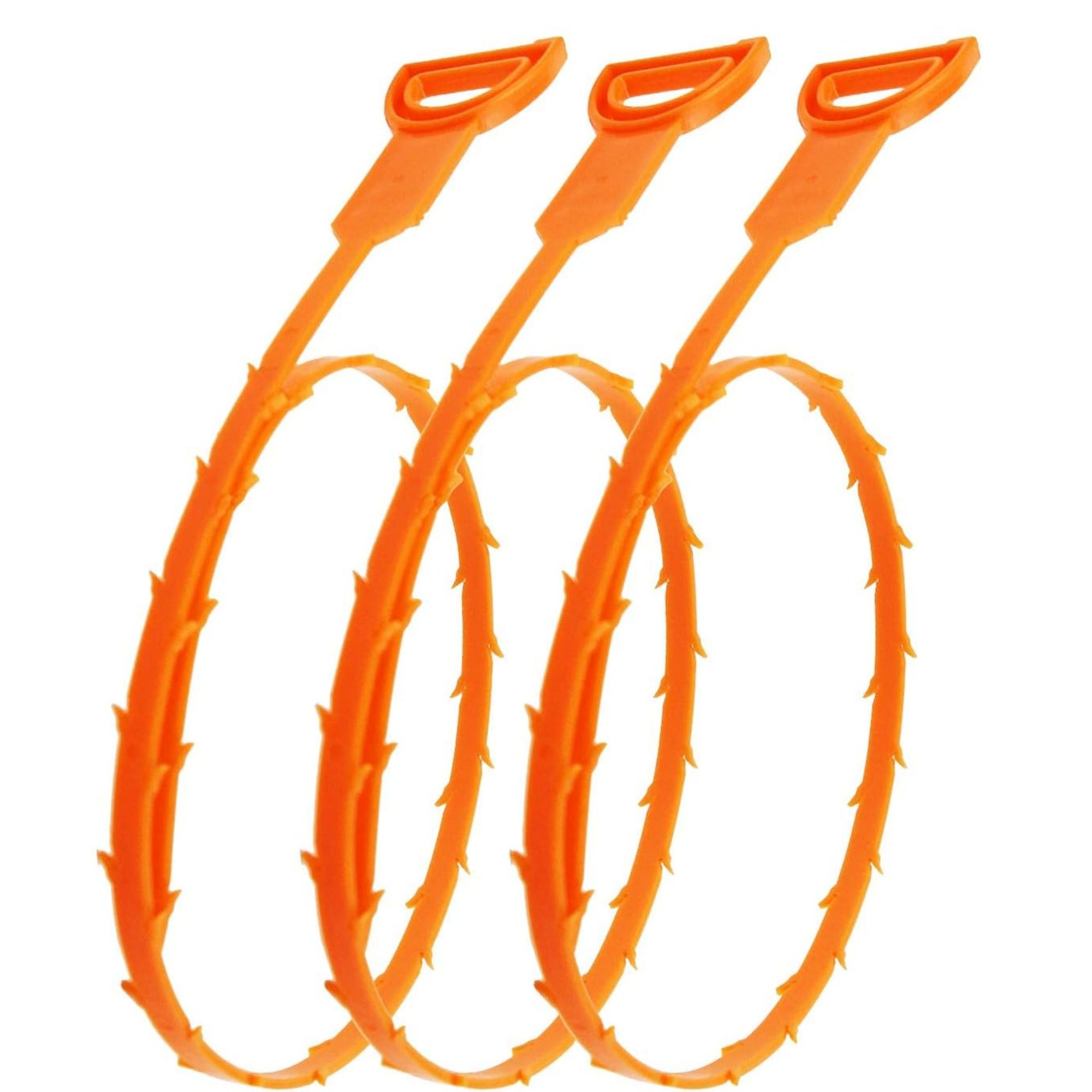
RRP: £6.29 | There's nothing quite as frustrating in your home as a clogged drain. And whilst there's also a drain unblocker, it doesn't always quite rid your pipes of tangled hair, food bits and built-up dirt. This will dislodge even the biggest lumps of grime stuck in the pipes.
5. Set a natural trap
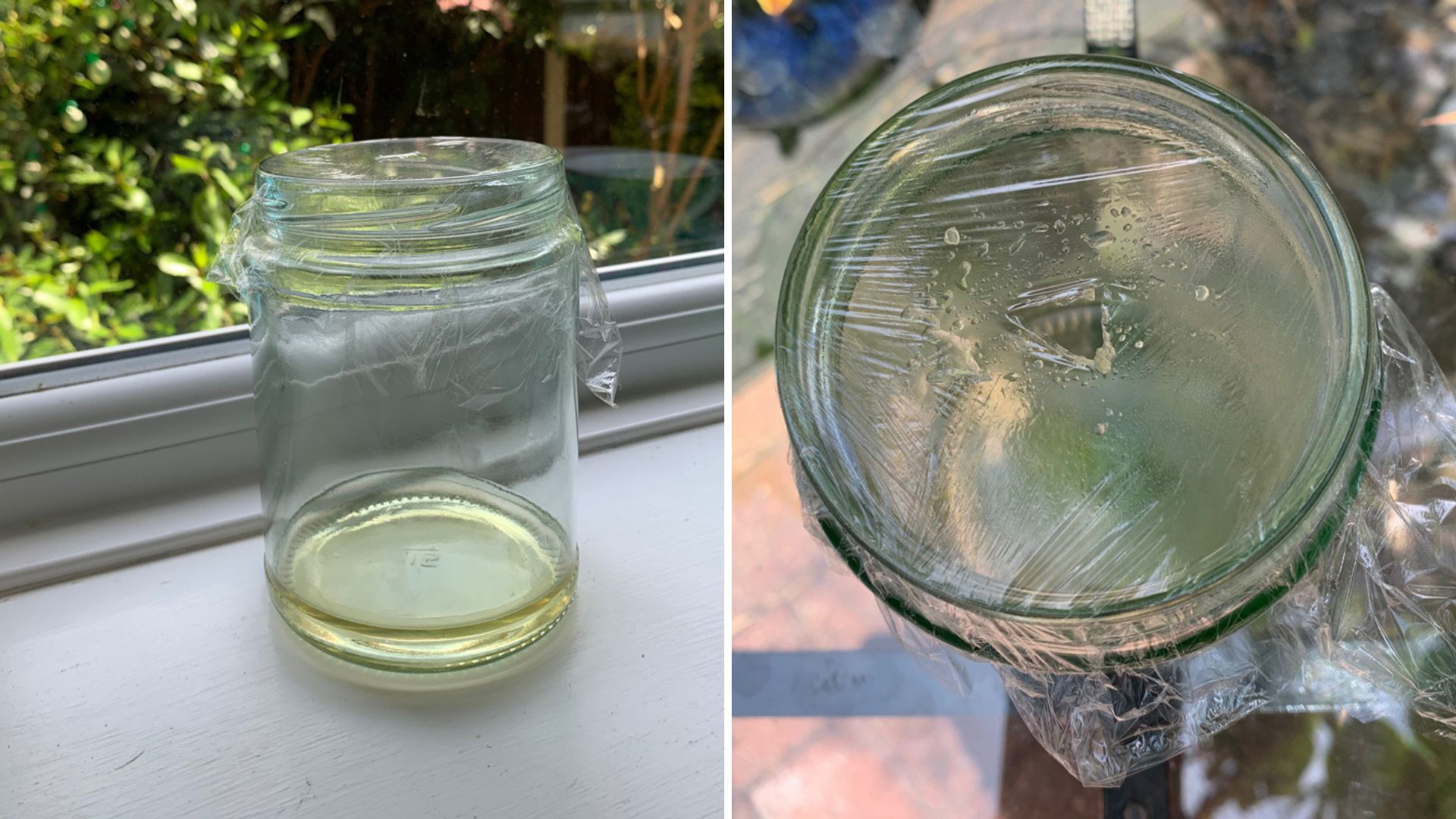
Once your kitchen is clean and you’ve removed any potential fruit fly breeding grounds, you’ll need to set a trap for any pests still buzzing around your kitchen to get rid of them completely.
Simply fill a few small containers with a mixture of apple cider vinegar and a squirt of dish soap, then cover the container with cling film and prick it with a toothpick to create a few holes.
If you don’t have any cling film, you could also top the containers with a piece of paper rolled into a funnel. The fruit flies should be able to get in, but not out of, these traps. Leave a few of these around your kitchen for a few days to catch any lingering flies.
6. Clean regularly
To prevent future infestations, keep surfaces clean, including those in cupboards and fridges, and deal with leftover foods (including any scraps left in your food processor, for example) as soon as you’re finished eating by throwing them away or storing them in an airtight container.
"Ensure your kitchen is clean and food debris-free by cleaning it regularly," says Jordan. "Food sources for fruit flies can be removed by wiping down counters, sweeping and mopping the floor, and emptying and cleaning garbage cans frequently. If you spill food or any other liquid in your kitchen, clean it up immediately."
7. Repel fruit flies with plants
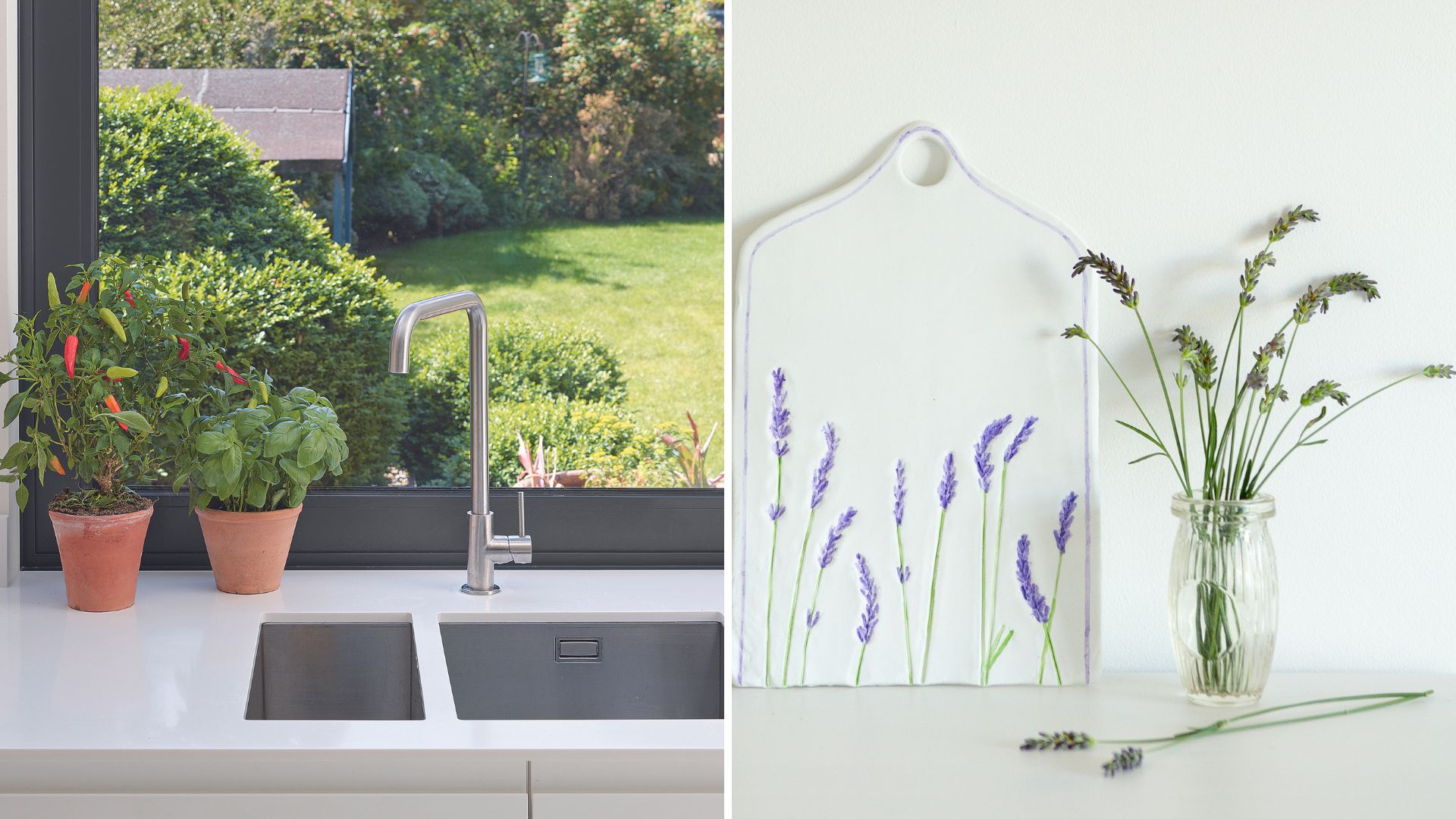
As well as brightening up the kitchen and aiding cooking by providing herbs, indoor plants can also help to deter fruit flies. "Plants are a great way to repel pesky fruit flies," says Suzie Woolley, head of plants at Serenata Flowers.
"Fruit flies typically hate the smell of lavender, rosemary, and peppermint, to name a few, so keeping these in your kitchen or living areas is a great way to keep them pest-free."
Keep a pot of basil near your window (where fruit flies often enter), or scatter some individual basil leaves around your fruit bowl. Learning how to grow herbs indoors has many benefits, not just deliciously fresh herbs.
RRP: £18.99 | Why not have twice the pest deterrent power with this two-pack? Place the plants in a pot or basket of your choice in your home, and you can enjoy a fly-free summer.
8. Utilise essential oils
"You might be surprised to learn that essential oils, such as lemongrass, can be effective in eliminating fruit flies," says Jordan. Try diffusing essential oils to keep fruit flies at bay; lemon verbena, thyme, or peppermint are thought to be the most effective.
"Creating a lemongrass spray is a simple process," suggests Jordan. "Combine 4 cups (950 mL) of water with 14 drops of lemongrass essential oil in a spray bottle. Give it a good shake, and only apply the spray to surfaces where you spot fruit flies, such as cabinets, countertops, and walls."
"It's important not to spray the solution directly on any food items. In addition to lemongrass, other scents that repel fruit flies include basil, peppermint, eucalyptus, lavender, and clove."
9. Cover top soil on houseplants
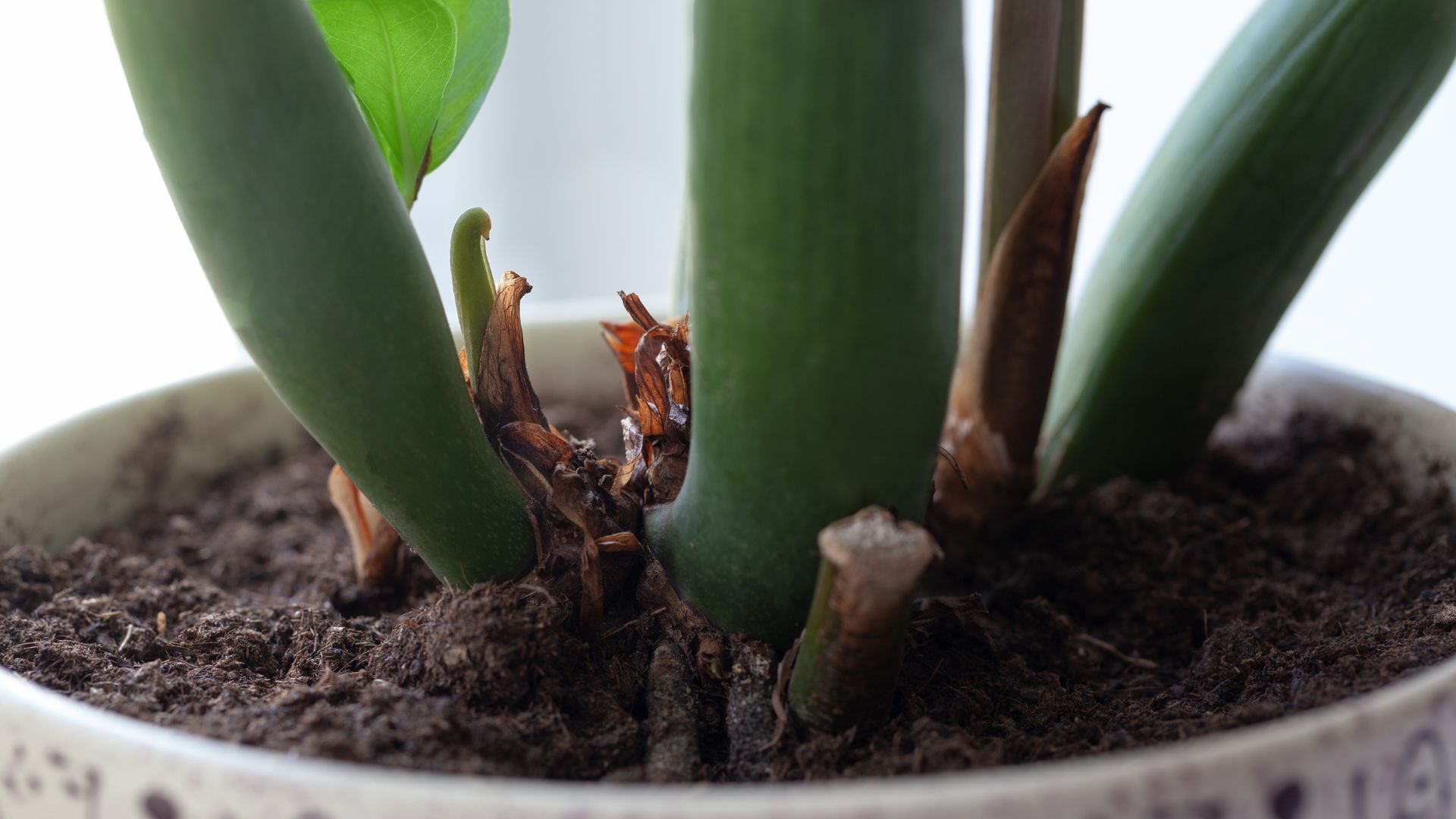
Despite the name ‘fruit fries,’ the source of an infestation can also be found in other types of products, such as a forgotten bag of potatoes or onions in the back of a cupboard.
It’s also possible that you don’t have a fruit fly problem at all; the soil from houseplants and potted herbs can be a breeding ground for fungus gnats, which look very similar to fruit flies. You might have been seeing tiny black flies in your home, and your plants can be the reason.
Tackle this problem by caring for your plants as required, removing dropped leaves, and being careful not to let them sit in water-logged soil – topping the soil with gravel can also help. Covering the soil of your indoor plants with sand or gravel allows you to still water, but the soil becomes inaccessible to the flies.
FAQs
What is the best homemade fruit fly killer?
You might be surprised to learn that the homemade route is one of the most effective ones when it comes to pest control, especially fruit flies. And in the same way garlic plant spray can deter outdoor pests, making your own concoction can be enough to rid your home of flies.
"The best homemade fruit fly killer is a simple trap using apple cider vinegar and dish soap. Just pour a small amount of apple cider vinegar into a bowl, add a few drops of dish soap and leave it uncovered near where fruit flies are active," starts Daniel Steward, pest control expert at Shield Pest Control.
"The vinegar attracts the flies, while the dish soap breaks the surface tension, causing them to sink. It’s an easy, non-toxic and highly effective way to get rid of fruit flies quickly," he adds.
What scent will keep fruit flies away?
Scent is an extremely powerful tool for pest prevention and can come from oils, herbs or even marigold plants in your garden. For fruit flies, though, the scents will need to be strong to properly deter them.
"Fruit flies are repelled by strong, pungent scents. Some of the most effective scents that keep them away include peppermint, lavender, eucalyptus, clove, lemongrass and cinnamon," says Daniel.
"These can be used in the form of essential oils–just add a few drops to a diffuser, mix with water in a spray bottle, or soak cotton balls and place them near sinks, rubbish bins or fruit bowls. These scents overwhelm fruit flies' senses and make your kitchen less inviting for them," he continues.
What causes fruit flies?
Even if you clean your home like a professional, small flies can often still set up shop in your home in commonly forgotten spots. But where exactly do they come from?
"Fruit flies are caused by the presence of fermenting or decaying organic food, especially overripe or rotting fruits and vegetables. They are attracted to sugary, moist environments where they lay their eggs. Poor sanitation, such as dirty drains, uncovered rubbish bins, and leftover food scraps, creates ideal breeding grounds for fruit flies to multiply quickly," states Daniel.
Now you know how to get rid of flies in the house, why not tackle your garden with this genius plant pot pest control hack? It's sustainable, harm-free and extremely effective.







